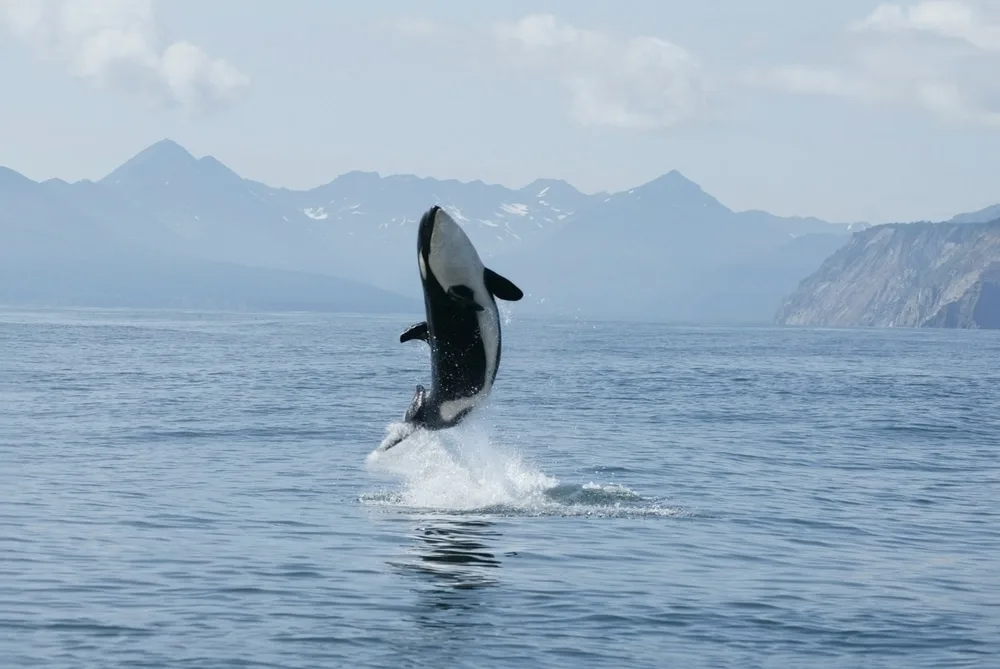Be aware of your surroundings so you don’t end up in this scenario. In this article, we discuss the stunning viral footage capturing killer whales hunting great white sharks and the science behind their unusual preference for liver.
The Apex Predator Rivalry

Few marine creatures can rival the power and intelligence of killer whales. These highly coordinated hunters have earned their reputation as apex predators, and their ability to take down great white sharks is a testament to their dominance. Unlike sharks, which rely on brute force and instinct, orcas use strategic hunting techniques to outmaneuver their prey.
A Deadly Hunting Strategy

Killer whales have been observed targeting great white sharks with remarkable precision. Working in groups, they isolate an individual shark and flip it onto its back, inducing a state of paralysis called tonic immobility. Once immobilized, the orcas tear into the shark, extracting its liver with surgical precision while often leaving the rest of the body untouched.
Why Just the Liver?
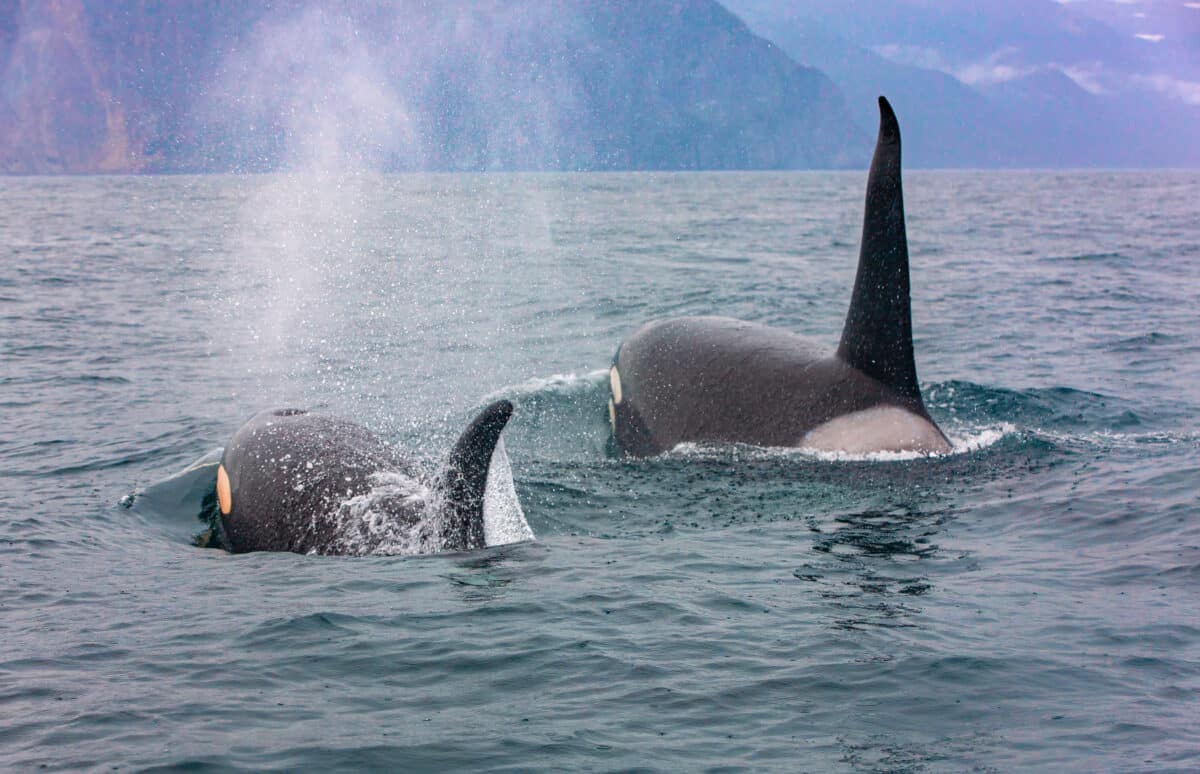
The great white shark’s liver is a nutrient-rich powerhouse packed with fats and essential oils. It provides an energy-dense meal that fuels the orcas with minimal effort. Scientists believe orcas have evolved to recognize this valuable food source, leading them to specifically target the liver while ignoring other parts of the shark’s body.
A Shocking Encounter
A recently surfaced video captured a jaw-dropping moment as a pod of killer whales surrounded a great white shark. The footage shows the orcas working in sync, flipping the massive predator and tearing into its underside.
This rare and brutal display of nature’s hierarchy left viewers in awe and raised questions about the balance of power in the ocean.
The Aftermath
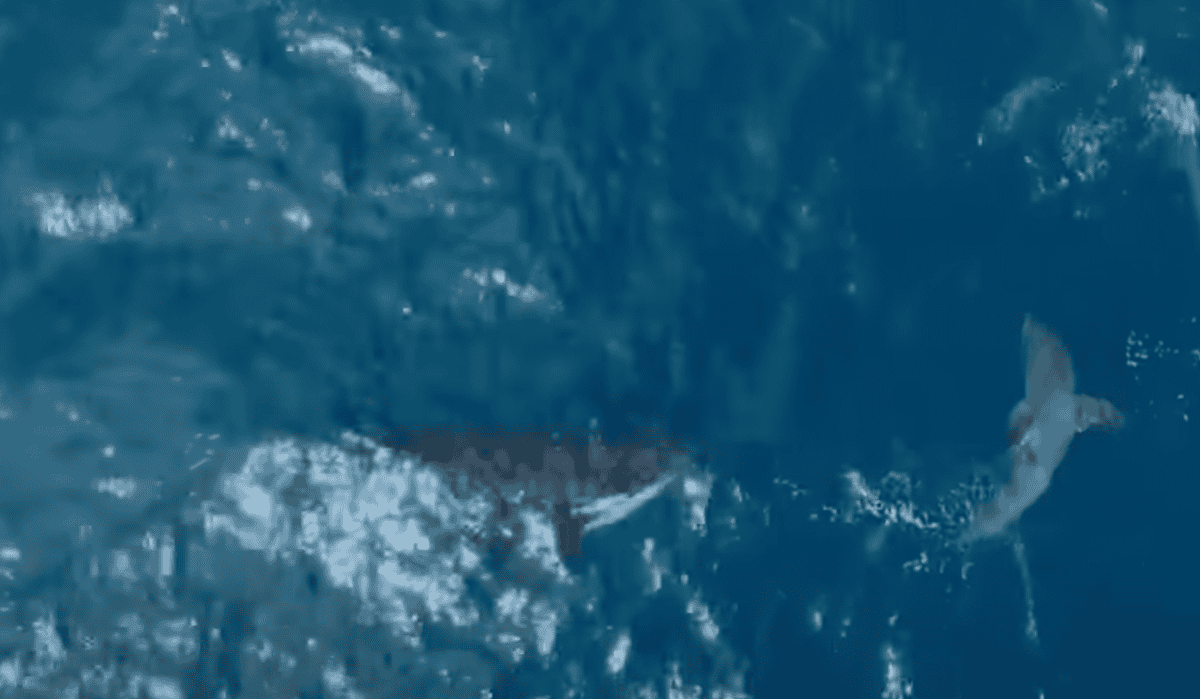
The carcass of the great white shark, stripped of its liver, was later found drifting in the water. The event further supports scientific research indicating that great whites actively flee areas where orcas have been sighted. This natural predation could be reshaping marine ecosystems as sharks avoid historically dominant hunting grounds due to the presence of killer whales.
Watch the Full Video Here.
FAQs
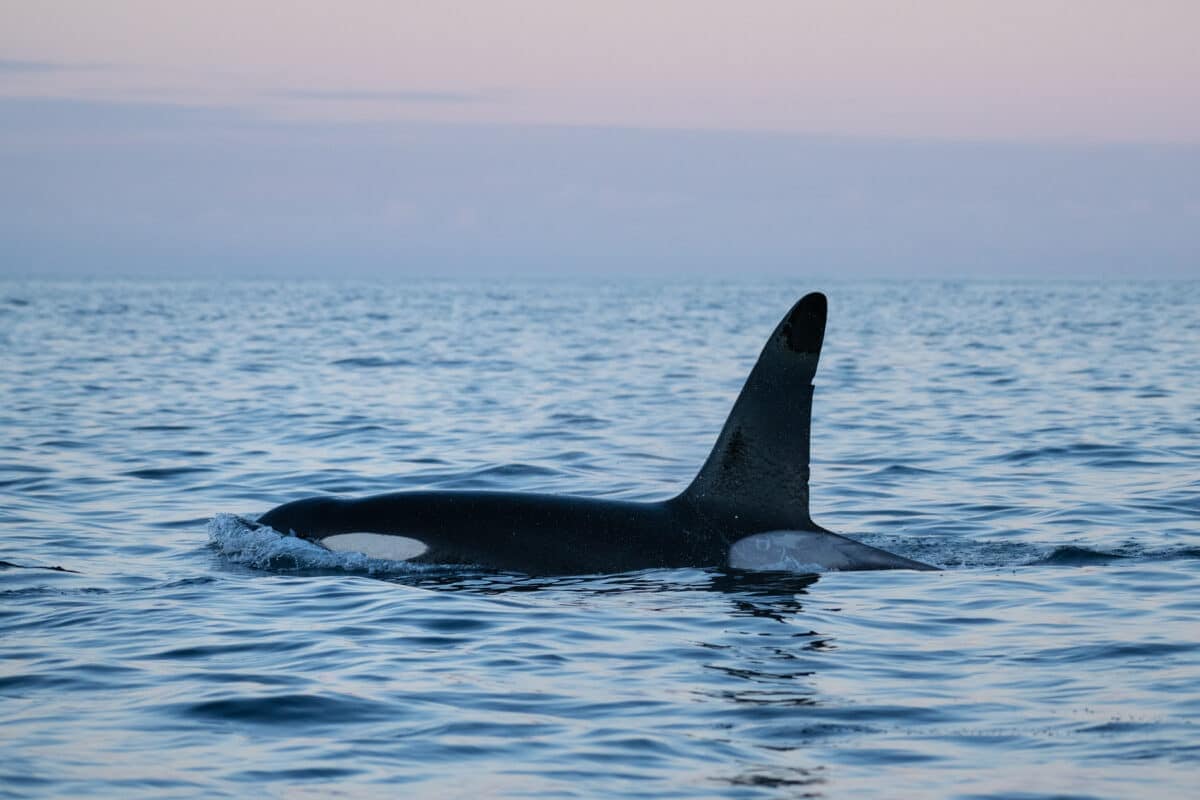
Do orcas regularly hunt great white sharks?
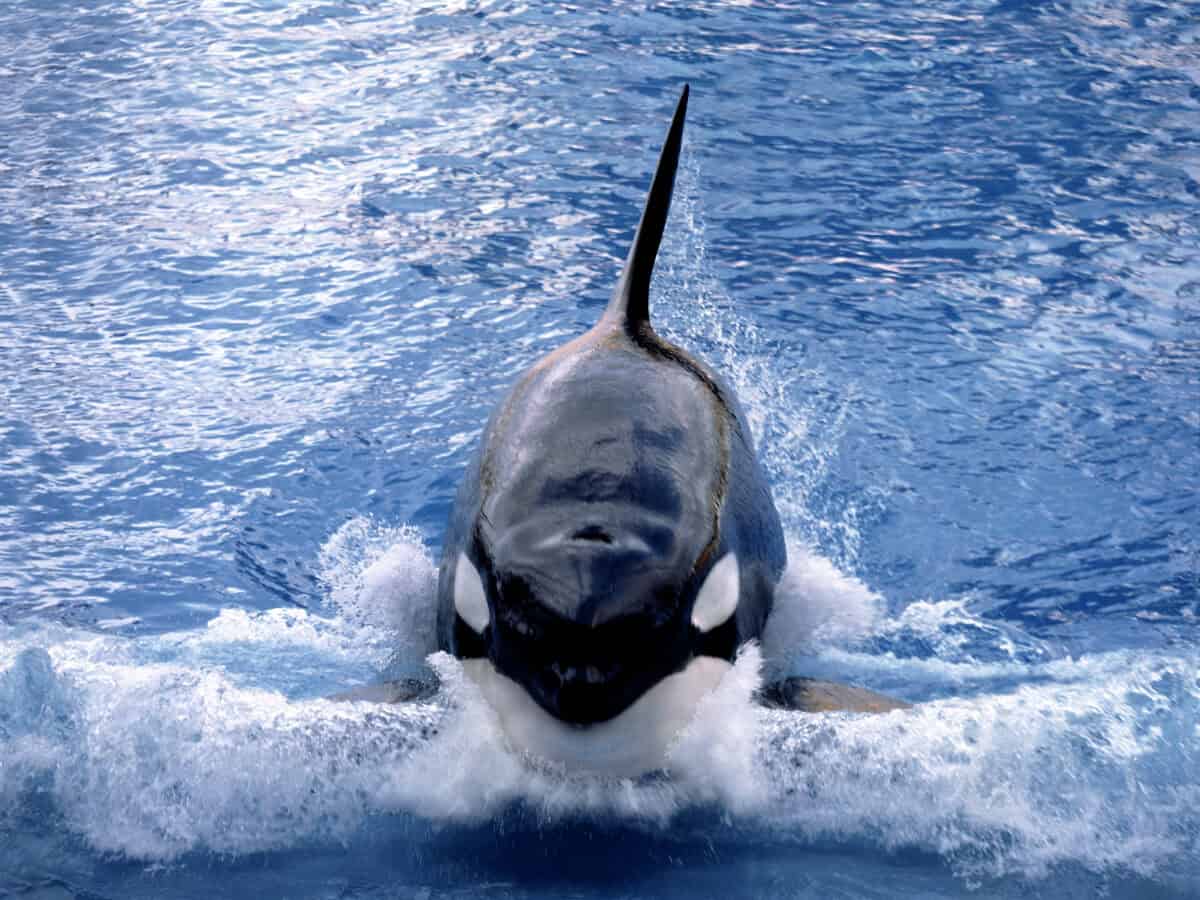
Yes, in recent years, marine biologists have documented multiple cases of orcas preying on great white sharks. These intelligent predators have developed specialized techniques to efficiently hunt sharks, making them a formidable threat to the once-dominant apex predator.
Are great white shark populations at risk due to orca predation?

While orca attacks on great whites are increasing, shark populations face a greater threat from human activities such as overfishing and habitat destruction. However, localized shifts in shark populations due to orca presence have been observed, leading scientists to study the long-term impact of this predation.
Why do orcas flip sharks upside down?

Flipping a shark onto its back induces a natural state of paralysis called tonic immobility. This renders the shark defenseless, allowing the orcas to extract its liver with ease. This behavior highlights the orcas’ intelligence and advanced hunting strategies.
Next Up:
Facts About Killer Whales

Killer whales are among the most fascinating and intelligent marine animals. Their hunting prowess, social structures, and adaptability make them unique among ocean predators.
1. Orcas Are Apex Predators

They have no natural predators and can hunt a variety of marine species, including seals, whales, and even sharks.
2. Orcas Have Distinct Cultural Groups
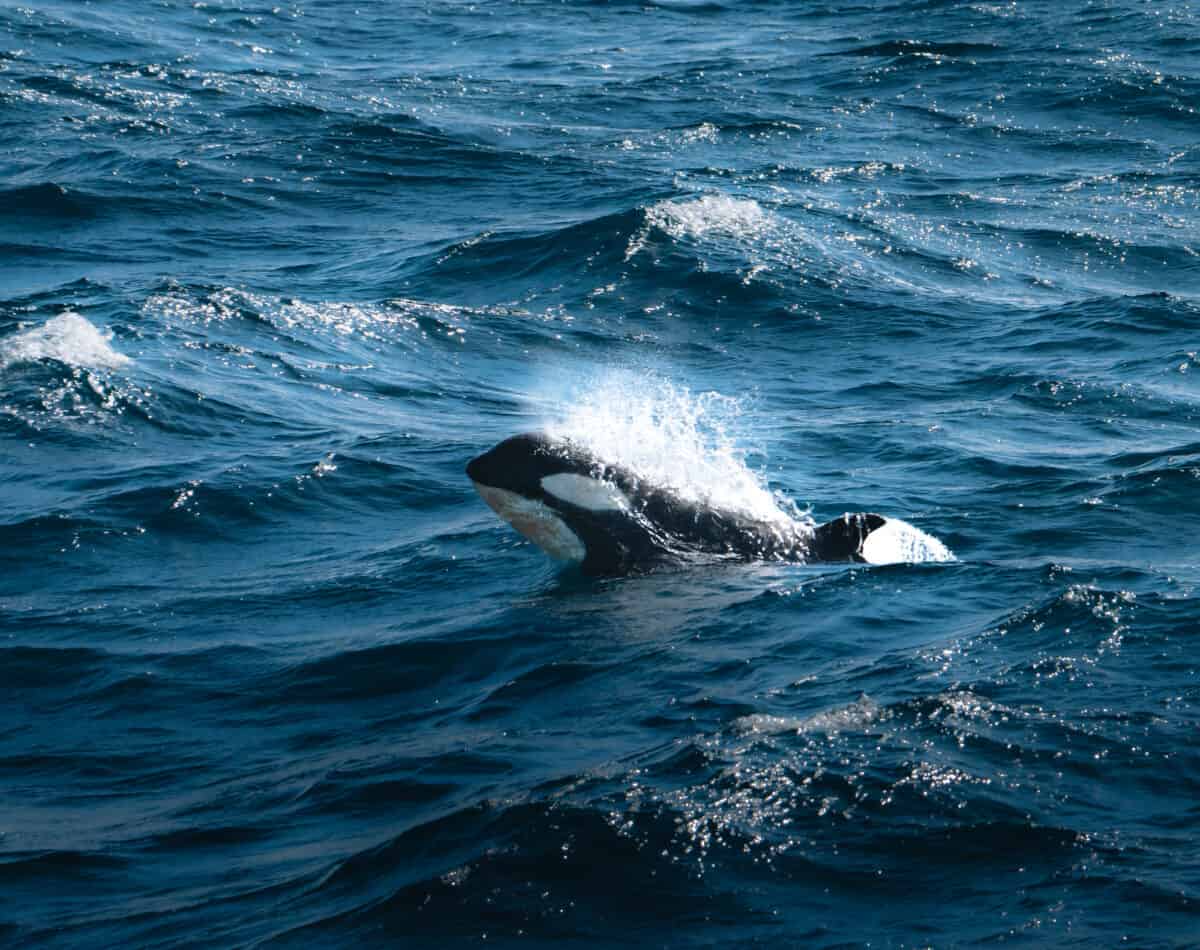
Different orca populations have unique hunting techniques and vocalizations, passed down through generations.
3. They Use Echo-Location to Hunt
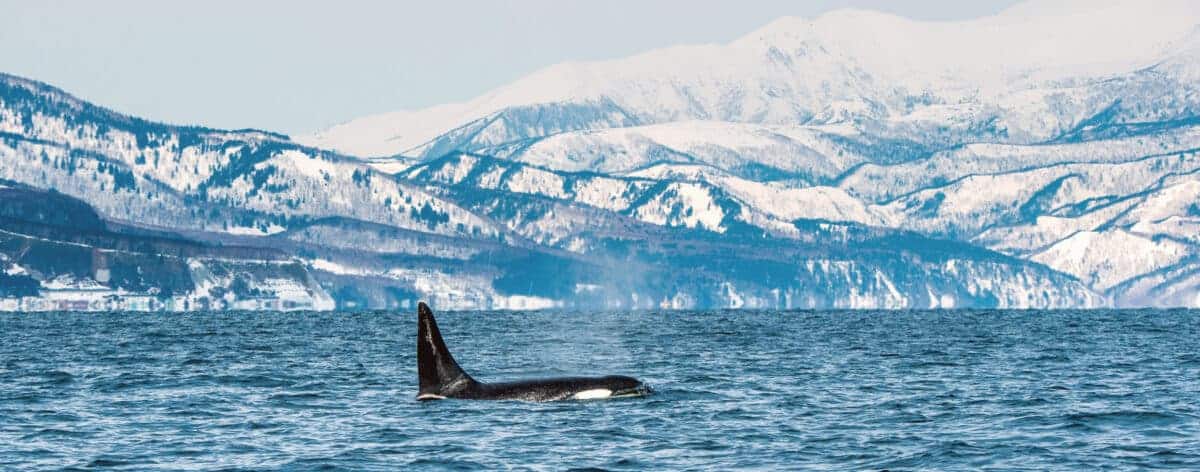
Orcas emit sound waves to locate prey, allowing them to hunt effectively even in murky waters.
4. Orcas Have Complex Social Structures

They live in close-knit pods, led by a matriarch, and exhibit deep familial bonds.
5. Killer Whales Can Adapt to Various Environments

They are found in oceans worldwide, from the icy waters of the Arctic to tropical seas.
6. Orcas Are Incredibly Intelligent

They demonstrate problem-solving skills, strategic hunting techniques, and even self-awareness.
7. Some Orcas Specialize in Hunting Marine Mammals

While some pods target fish, others specialize in hunting seals, whales, and even sharks.
8.They Can Live Up to 90 Years

Orcas have one of the longest lifespans among marine mammals, with females outliving males.
9. They Communicate Using Dialects

Different orca pods have distinct vocal dialects that help them communicate within their group.
10. Orcas Play a Key Role in Marine Ecosystems

As top predators, orcas help regulate prey populations, ensuring ecological balance.
You might like this:
- How and Why Orcas are Dominating False Bay
- Three Orcas Investigate Swimmer
- Orca Nearly Released After 50 Years In Captivity
- 21 Animals That Call Acadia National Park Home - August 9, 2025
- Conservationists Race to Save England’s Last Turtle Doves - August 9, 2025
- Seal Numbers Are Plummeting in Antarctica And Sea Ice May Be to Blame - August 8, 2025

